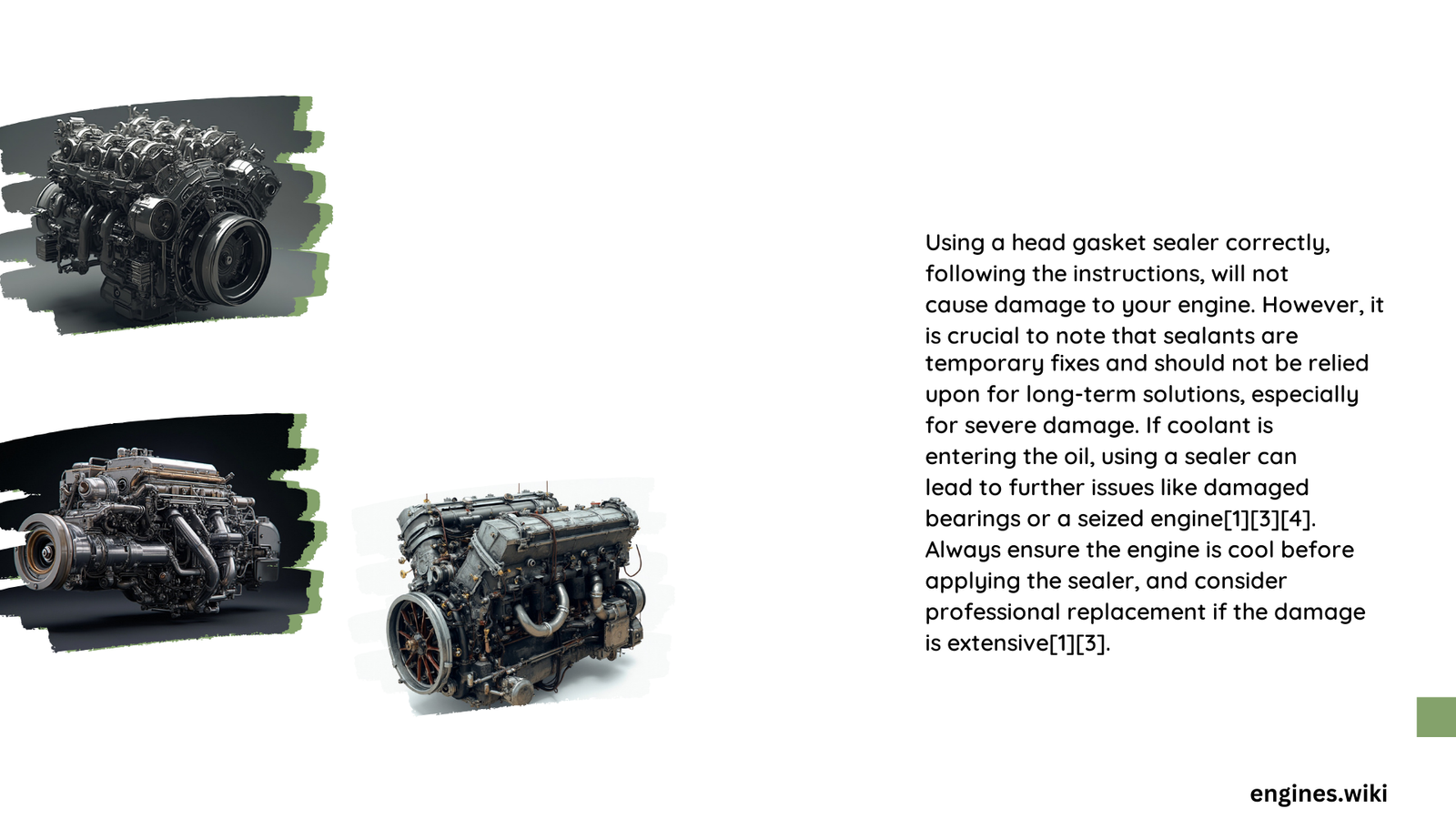Head gasket sealers can be a double-edged sword for vehicle owners. While they offer a quick and potentially cost-effective solution for minor leaks, these products carry significant risks that could potentially cause more damage to your engine than the original problem. Understanding the nuanced implications of using a head gasket sealer is crucial for making an informed decision about your vehicle’s health and longevity.
What Exactly Happens When You Use Head Gasket Sealer?
Head gasket sealers work by introducing a chemical compound into the cooling system that temporarily or permanently seals small leaks. However, the effectiveness and potential risks vary depending on several critical factors:
Can Head Gasket Sealer Cause Permanent Engine Damage?
| Risk Level | Potential Consequences | Likelihood |
|---|---|---|
| Low Risk | Temporary seal, minimal disruption | Minor leaks |
| Medium Risk | Partial system blockage | Moderate leaks |
| High Risk | Complete engine failure | Severe leaks |
Specific Engine Damage Mechanisms
- Coolant System Blockage
- Sealers can potentially clog narrow coolant passages
- Reduces overall cooling system efficiency
-
Increases risk of overheating
-
Lubrication System Contamination
- Chemical compounds may mix with engine oil
- Reduces oil’s lubricating properties
- Accelerates internal engine wear
How Do Different Engine Types React to Sealers?
Engines respond differently based on:
– Age of the vehicle
– Severity of the head gasket leak
– Specific engine design
– Manufacturing tolerances
Factors Determining Sealer Effectiveness
- Leak Size: Smaller leaks (<0.5mm) have higher success rates
- Engine Temperature: Proper application requires specific temperature ranges
- Chemical Compatibility: Some engines are more sensitive to chemical interventions
What Are the Warning Signs of Potential Sealer-Related Damage?
Critical indicators that your head gasket sealer might be causing harm:
– Persistent overheating
– Unusual exhaust smoke
– Decreased engine performance
– Visible coolant contamination in oil
– Grinding or knocking sounds
When Should You Avoid Using Head Gasket Sealer?
Do Not Use If:
– Extensive head gasket damage exists
– Multiple cooling system components are compromised
– Vehicle has high mileage
– Previous unsuccessful repair attempts
Cost Comparison: Sealer vs. Professional Repair
| Repair Method | Average Cost | Reliability | Duration |
|---|---|---|---|
| Head Gasket Sealer | $20 – $50 | Low-Medium | 3-6 months |
| Professional Repair | $1,000 – $2,500 | High | 5-10 years |
Expert Recommendations

Professional mechanics generally recommend:
– Thorough diagnostic testing before applying sealer
– Using high-quality, vehicle-specific products
– Treating sealers as a temporary solution
– Preparing for potential full repair
Final Verdict: Proceed with Caution
While head gasket sealers can provide a temporary fix, they are not a guaranteed long-term solution. The potential for engine damage exists, and professional assessment remains the most reliable approach.
Pro Tip: Always consult a certified mechanic before attempting any DIY engine repairs.
Preventative Maintenance Tips
- Regular coolant system checks
- Monitor engine temperature
- Address minor leaks promptly
- Use high-quality coolant
- Maintain proper engine oil levels
Conclusion
Head gasket sealers can help in specific scenarios but carry inherent risks. Understanding your engine’s condition and consulting professionals will help you make the most informed decision.
